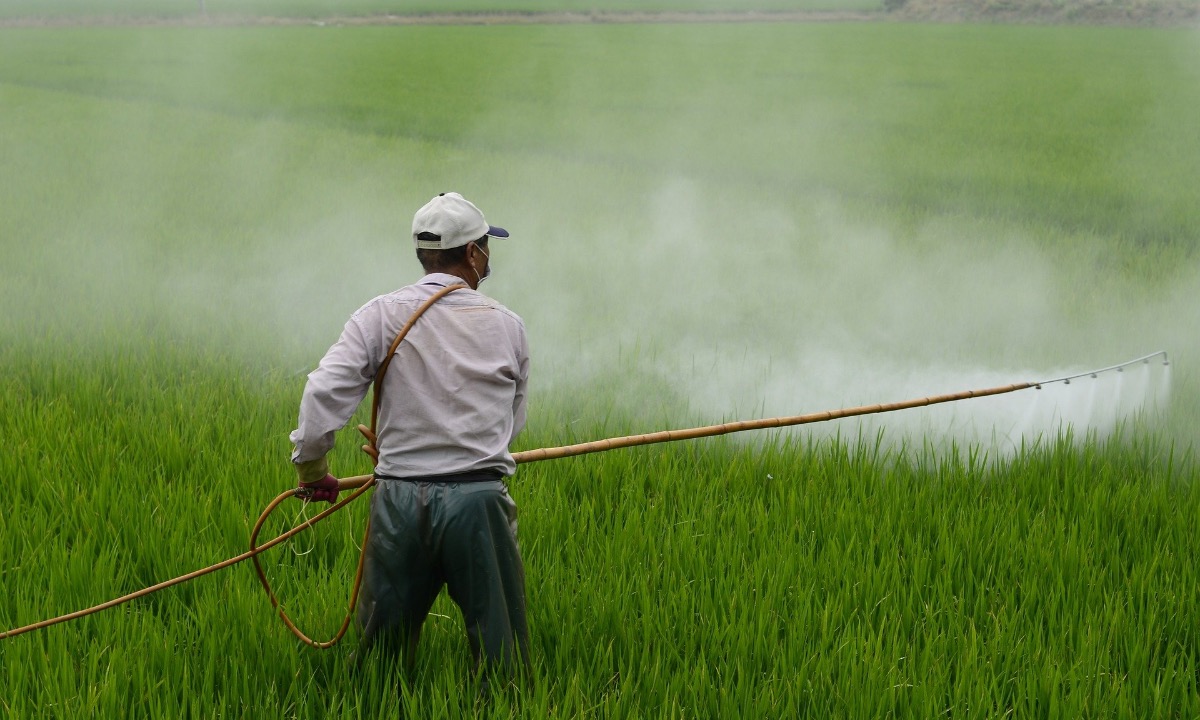Agtech startup developing “exciting†evolving herbicides in effort to crack herbicide resistance, says top hedge fund adviser
By David Stevenson on Friday 30 April 2021

By David Stevenson on Friday 30 April 2021

Oxford-based MoA Technology “aims to change the herbicide game†and “fix the broken and outdated" $26bn (£18.7bn) industry, says Nicky Grant, Ocean Wall’s head of corporate advisory.
Herbicide resistance is a long-standing problem that continues to plague food production globally. There are over 250 herbicide resistant weed species globally, according to industry figures.
In the UK, around 20,000 farms have herbicide resistant blackgrass, the most common weed in the UK. Herbicide resistance causes the loss of 0.82m tonnes of wheat a year, significantly denting farmers’ incomes, industry figures also show.
In this article, Nicky Grant, head of corporate advisory at Ocean Wall, the advisory group to hedge funds and private clients, offers her thoughts on MoA Technology’s business and its prospects.
The Oxford-based startup is looking to develop sustainable herbicides, which Grant says are not only producing “herbicides that will work now but also have the ability to predict and evolve in the future.”
Nicky Grant
In the middle of the recent OSI Cleantech Presentation, Dr Virginia Corless – CEO of MoA Technology (formerly CCO, Novihum) announced that herbicides are in fact the way forward for a sustainable farming future. Not what I think of as ‘clean’ ….
Inarguably one of the greatest challenges facing the farming community is herbicide resistant weeds which threaten food production. Weeds impact crop yields by competing for light, water and nutrients and can reduce yields by 40-50 per cent.
In 2019, a survey of herbicide resistant blackgrass in England revealed the true extent and severity of infestations. Blackgrass is not only a problem across the whole cereal growing area of England but also France, Germany and other cereal producing countries in Europe.
Farmers try to combat this weed by crop rotation and delayed sowing but this – in itself – only slightly reduces the effect but also causes higher costs and lower yields. This survey indicated that in 2014 blackgrass cost UK farmers £400m, but now the actual figure could be closer to £1bn.
To combat this – there would need to be a significant rise in higher concentrations of herbicides, increased use of fertilizers – plus increased deforestation and erosion – increasing carbon footprint.
Herbicides have been ‘vilified’ and as a result – it became unfashionable and unattractive to research or manufacture new herbicides or new modes of action.
The impact of that is, for 30 years, this market hasn’t evolved or developed and so, if this continues - without new and constantly evolving herbicides – food production will decrease and farming will become totally inefficient – not a sustainable future.
MoA Technology aims to change the herbicide game and help fix this broken and outdated $26bn (£18.8bn) industry. They have created three new discovery platforms to find new modes of action and create new generations of safe herbicides.
These are MoA Galaxy which allows the simultaneous discovery of new herbicidally active chemicals and a prediction of the novelty of their modes of action.
MoA Target can identify the precise target protein associated with a new mode of action – which is important for two reasons; (a) if the protein is found only in plants this predicts that the mode of action should be safe to humans and the environment, and (b) this knowledge also assists in the discovery of more effective analogues for this mode of action.
MoA Select can discover other herbicidal active molecules utilising knowledge from MoA Galaxy and MoA Target.
MoA have strong IP and product pipeline – with multiple leads, five patent families, 350,000+ compounds screened and their first field trials starting in 2021.
They are already collaborating with several large AgChem players on platforms and compounds – and there are clear pathways for further collaboration, licencing and own development of products.
This is a very exciting company who are using technology to not only produce herbicides that will work now but also have the ability to predict and evolve in the future.
In conclusion, Dr Corless states: "MoA can rapidly discover an unprecedented abundance of new biological modes of action – the critical element for breaking herbicide resistance – while generating better early data about e.g. safety with which to choose which chemistries to develop.
"Sustainably controlling weeds for decades to come will not be the result of a single 'silver bullet' breakthrough, but instead will require an integrated long-term approach that combines new technologies and farming practices.
"By bringing to market a series of safe, new mode of action herbicides that give farmers better options for lasting weed control, MoA will provide vitally important building blocks for a genuinely sustainable agricultural future."
Current investors include Oxford Science Innovations, IP Group, University of Oxford, Parkwalk Advisors, Bits x Bites and BGF. Next raise: £15m+ - closing Q4 2021/Q1 2022 to develop candidates, secure new modes of action, develop industry partnerships, further develop and broaden scope of discovery platforms.
2 August 2021
Paul Cuatrecasas
13 September 2021
Paul Cuatrecasas
30 June 2021
Paul Cuatrecasas
9 September 2021
David Stevenson